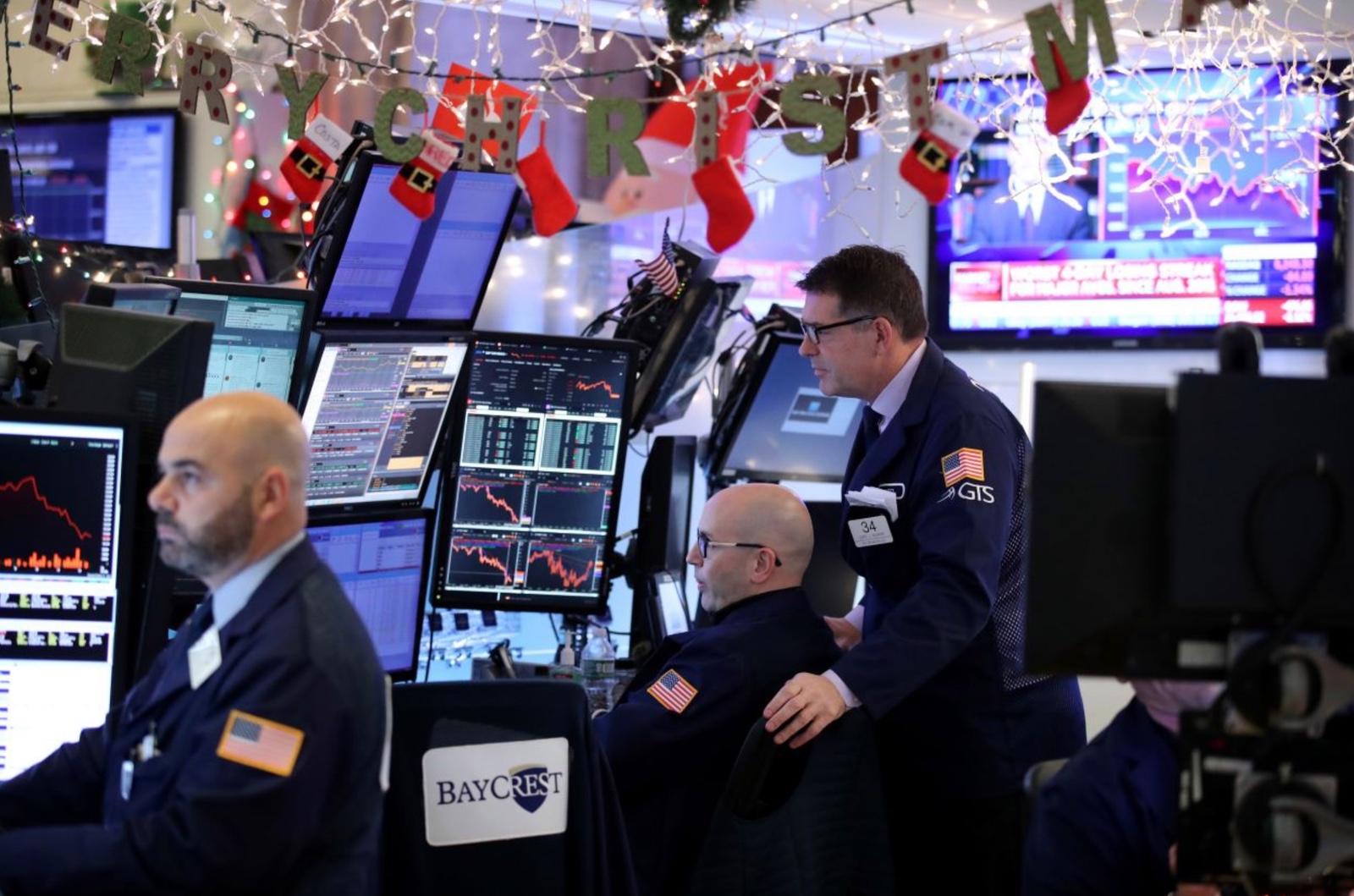What we’re tracking on 27 December 2018
THANK YOU, all 62k of you, for starting your mornings with us. It is an honor to write you each day.
ENTERPRISE IS MADE POSSIBLE by the generous support of Pharos Holding, CIB and SODIC.
ENTERPRISE IS: Hisham, Salma, Arwa, Aly, Hoda, Ahmed, Elsayed, Yasmine, Hasaballah, Alaa, Danna, Ghada, Malak, Moustafa, Tarek, Rafael, Attia, Ahmed, Hadia and Patrick.

It’s interest rate day, ladies and gentlemen, and our poll of 10 economists sees the central bank leaving overnight deposit (16.75%) and lending rates (17.75%) unchanged even as inflation fell back into the government’s target range of 13%, plus or minus 3 ppt. Leaving rates on hold could help maintain foreign appetite for Egyptian debt, the economists said, particularly after the turbulence that has swept markets this year and after the US Federal Reserve raised interest rates again last week.
“Why would I want interest rates to come down? I like parking cash in the bank at high interest rates.” Sure: High rates attract savers, giving banks deposits they can then lend out to government — at a rate the government finds a just a bit too high, to be frank. And the carry trade is happy, too, so their inflows help support the EGP. But high interest rates are corrosive to the real economy. 19% of respondents to our 2018 Enterprise Reader Poll, the largest survey of executive sentiment in Egypt, said that the high interest rate environment is the most significant obstacle facing their businesses — and 64% of respondents said high interest rates are negatively affecting their investment plans.
So when are rates coming down? The emerging consensus is that we’re not going to see the central bank cut interest rates until sometime in late 2019: Both EFG Hermes and Pharos Holding are calling 4Q2019. Among the brand name firms we surveyed, only Capital Economics is suggesting the central bank’s easing cycle could begin in early 2019.
US equities rallied yesterday on reports of strong holiday retail sales, with markets surging more than 1,000 points in a single day for the first time. The rally left the Dow, Nasdaq and S&P 500 with their largest daily percentage gains in nearly a decade, Reuters reports, snapping a losing streak that left the main indexes all down at least 10% this month alone. The performance yesterday of major US benchmarks is the lead story on the digital editions of the Financial Times and the Wall Street Journal.
Asian shares are following suit this morning, and oil is also rallying as he head into dispatch time.
Is this “miracle resurrection” really a “dead-cat bounce,” Bloomberg wonders. Rallies may be common in troubled times, the business information service writes, but perhaps this time the market got ahead of itself with the recent plunge “when everything from hiring to earnings to the economy are still rising. ‘We’ve had times when we dropped 20 percent and went into recession, but this is an example, so far, where the market realizes a recession isn’t imminent, and going down 20% doesn’t make sense,’” one analyst told Bloomberg.
One warning signal to keep in mind: Less money is flowing into exchange-traded funds and mutual funds, the WSJ reports, suggesting that “investor pullback from the asset-management industry in 2018 is the most severe since the last financial crisis, a sign that doubts about the direction of global markets are intensifying.”
Investors like green bonds not because they’re “good,” but because “of the additional disclosure that it forces issuers to provide.” Green bonds may soon be on the investment menu in Egypt, but the market for “environmentally labelled debt,” as the FT calls it, slowed in 2018 after “growing exponentially” for a decade: “After expanding 77 per cent from 2015 to 2016, and 65 per cent in the year to 2017, the value of green bond sales grew just 12 per cent from 2017 to 2018.
Qatar FTW? The statelet’s benchmark equities index is up the most of any in the GCC this year, it snagged more foreign inflows into its stocks than any other Gulf market, and the cost of insuring its debt plunged this year while the cost of markets from Oman to KSA spiraled upward. (Bloomberg)
Shocker: Lots of investors still want to do business with KSA. (WSJ)
Words of the year for 2018: It was “GDPR” for the Financial Times and “crypto” for the Economist, which nevertheless says it wishes it could have chosen “tariffs” instead.
Some New Year’s miscellany for you this morning:
Warning: Low-rise jeans will start staging a comeback in 2019, trend watchers suggest.
Plan your year with the Hollywood Reporter’s list of 65 of 2019’s most anticipated movies.
NYT tip-lists we’re saving to read later:
- 6 ways to work smarter, not harder, in 2019
- 7 ways to age well in 2019
- 8 delightful tips for a smarter life in 2019
Reality check of the morning: The relentlessness of modern parenting.
